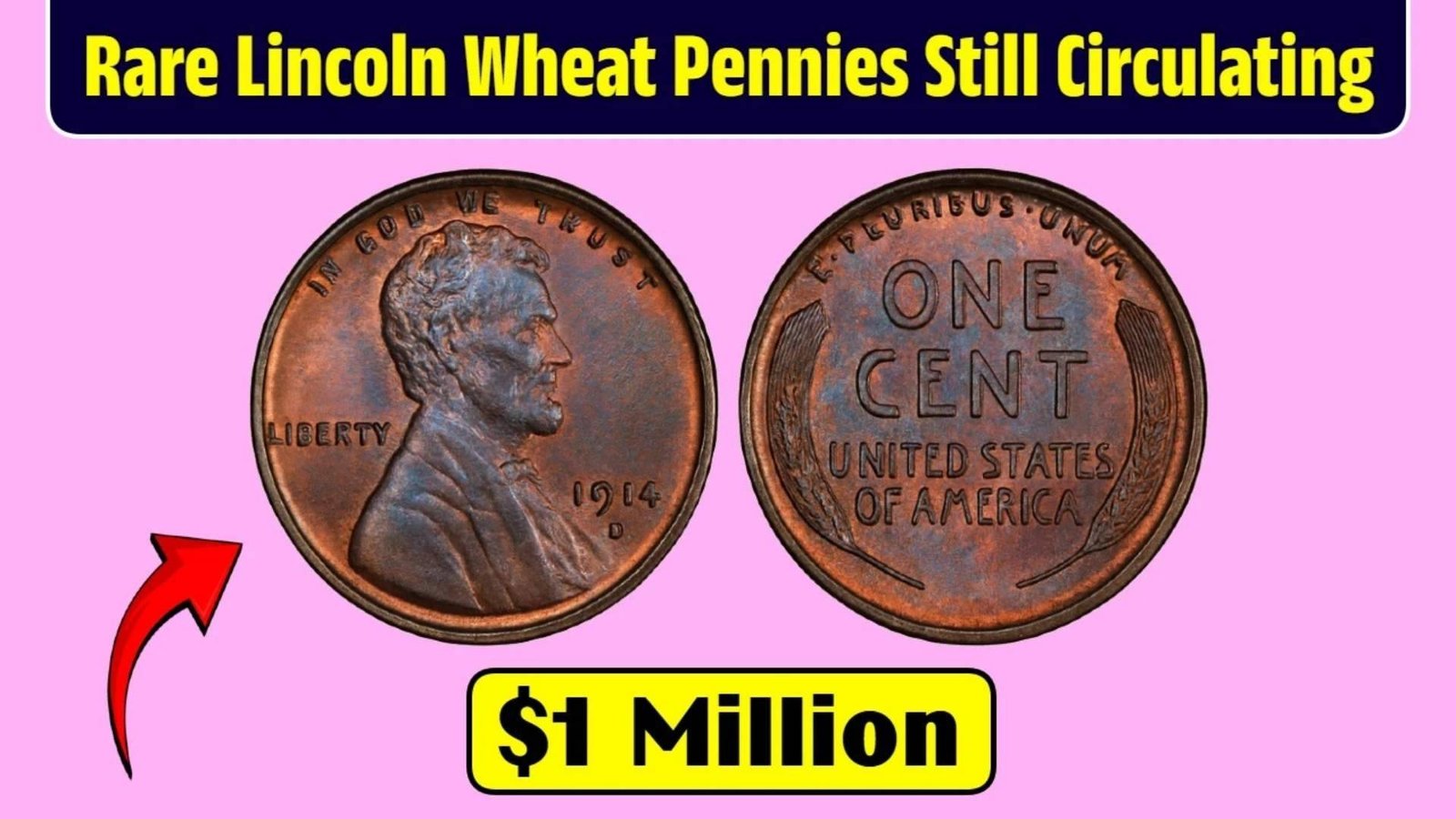What if the change in your pocket could change your life? Believe it or not, some Lincoln Wheat Pennies still slip through circulation today — and certain rare varieties have sold for staggering amounts, with some valued at up to $1 million. Your next penny might be a jackpot.
What Are Lincoln Wheat Pennies?
Introduced in 1909 to honor President Abraham Lincoln’s 100th birthday, the Lincoln Wheat Penny features his portrait on the front and wheat stalks on the back. Minted until 1958, these coins were once everyday currency, but some rare errors and early mintages have become legendary treasures for collectors.
The Hidden History of Wheat Pennies
The Wheat Penny was the first U.S. coin to feature a president. Initially designed by Victor David Brenner, it carried a small “VDB” signature on the reverse. Some early 1909-S VDB pennies were minted in such low numbers that they became instant rarities. Over time, misprints and oddities — like the famous 1943 copper penny — added mystery and value to this humble one-cent coin.
Key Rare Lincoln Wheat Pennies
| Year & Mint Mark | Notable Feature | Estimated Value |
|---|---|---|
| 1909-S VDB | Low mintage, designer mark | $700 – $50,000 |
| 1914-D | Scarce Denver mint issue | $300 – $15,000 |
| 1943 Copper | Struck on wrong planchet | $100,000 – $1M |
| 1955 Double Die | Double lettering error | $1,000 – $200,000 |
Why They’re Valuable Today
These pennies aren’t just old change — they’re historical artifacts. Collectors crave rarity, condition, and errors, which make certain Wheat Pennies worth far beyond face value. The legendary 1943 Copper Wheat Penny, made during WWII when most pennies were steel, has sold for six figures multiple times and is still sought after.
How You Can Spot One
Finding a rare Wheat Penny isn’t just luck — it’s about knowing what to look for:
- Check the Date and Mint Mark — Early mintages from San Francisco or Denver are often scarce.
- Search for Errors — Double dies, off-center strikes, and unusual metals are worth big money.
- Inspect the Condition — Uncirculated coins command the highest prices.
Condition vs. Value of Rare Wheat Pennies
| Coin Type | Circulated Value | Uncirculated Value |
|---|---|---|
| 1909-S VDB | $700 – $2,000 | $10,000 – $50,000 |
| 1943 Copper | $150,000+ | Up to $1,000,000 |
| 1955 Double Die | $1,000 – $15,000 | $25,000 – $200,000 |
Jaw-Dropping Facts About Wheat Pennies
- The U.S. Mint produced over 24 billion Wheat Pennies, yet only a handful of rare varieties exist.
- The 1943 Copper Penny is one of the most famous error coins in American history.
- Some collectors have found Wheat Pennies in circulation as recently as 2023.
Expert Tips to Maximize Your Find
- Always Check Change — Grocery stores and vending machines still occasionally drop surprises.
- Use a Magnifying Glass — Small errors like double dies are easy to miss.
- Get Professional Grading — PCGS or NGC grading can multiply a coin’s value.
- Network with Collectors — Coin shows and online forums reveal market trends and selling opportunities.
FAQs
Q: Are Wheat Pennies still in circulation?
A: Yes, though rare, many still turn up in change or coin rolls.
Q: What’s the rarest Wheat Penny?
A: The 1943 Copper Penny, valued at up to $1 million, is considered the most famous.
Q: Do all old pennies have value?
A: Not all. Common Wheat Pennies may only be worth a few cents unless they have errors or low mintages.
Conclusion: A Million-Dollar Penny Could Be in Your Pocket
The Lincoln Wheat Penny is more than just an old coin — it’s a piece of history that might make you rich. From the elusive 1943 Copper Penny to the iconic 1909-S VDB, these tiny treasures prove that life-changing wealth can hide in plain sight. So next time you get change, take a second look. You might just find a fortune staring back at you.




